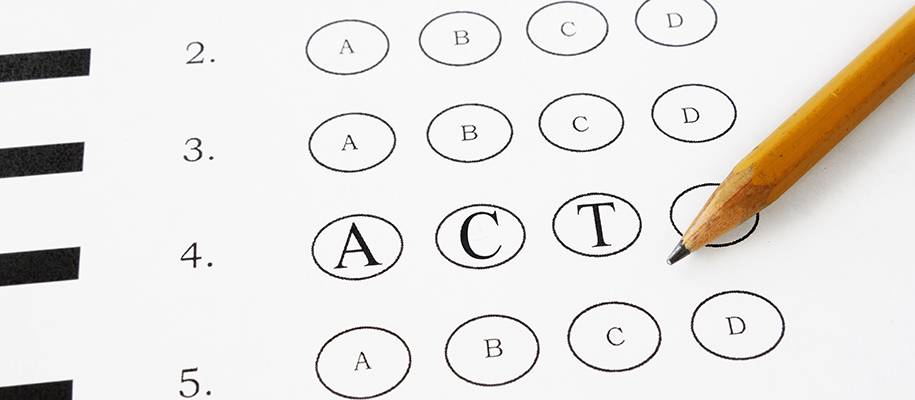What high schooler doesn't want to see a perfect 36 ACT score next on their college applications? A perfect score on the ACT—it's holy, untouchable, the ultimate standardized test victory. But what does ACT perfection really mean—and how do you get there? Let's take a look at my journey to a top ACT score and some easy tips that helped me achieve it.
My quest for ACT perfection
Personally, receiving a 36 was all I could imagine whenever the ACT was brought up. Under the harsh glare of living room lamps, I would pore over stacks of test-prep resources, my eyes darting across page after page from midnight until morning beckoned its hello. That magic 36 was the dream that kept me going. On the road to ACT perfection, the first thing you need to know is it’s okay to not reach it.
Do you know what I got the first time I took the test? A 32. A fine score, but I knew I wanted more. So I got back at it, studied, and retook the test. Ultimately, I was able to improve my score by three points, and though my eventual ACT score of 35 wasn’t quite perfect, I still count it as a win because getting a 36 on the ACT is a long shot. But because I aimed for perfection, I safely landed at excellent.
If you’re concerned about getting a 36 on the ACT, you’re probably a high achiever, but I promise you there is more to college, testing, and life than perfection. So be realistic: Aim high in your standardized test goals but be happy with meaningful improvement, whether that improvement puts you at a 24 or a 34.
Related: The Best ACT Test Prep Websites, Books, and Other Resources
How to study for the ACT in 4 easy steps
So you've decided you want to make gains in the ACT score department. Now how do you get there? There's the typical playbook of ACT prep tactics: buy study guides, do the practice tests until your eyes hurt and your fingers are raw from pencil burn, rinse, repeat. There’s merit in that process, but you have to do it right. Here are four key steps to effectively studying for the ACT:
1. Know what’s on the test
Most ACT study books come with a preface that summarizes the core concepts covered in each ACT section. Read it. I repeat, read it! That information is essential to success. What's the point of taking a standardized test if you don't know what's going to be on it? Don't start the practice tests until you have a firm grasp of the basic concepts being covered—otherwise, you're practicing to fail.
2. Review the test material thoroughly
Say the last time you encountered coordinates planes was in your eighth-grade geometry class, chances are you have some knowledge gaps that need to be refilled. Once you know what’s on the ACT, you can find your personal knowledge gaps and eliminate them. Read up on forgotten material instead of necessarily reviewing what you're confident with, and do ACT-style questions related to the material you struggle with, even if they're not official ACT practice problems.
Related: Essential Tips, Tricks, and Strategies for Taking the SAT and ACT
3. Take practice tests and time them
When you’re comfortable with the core material on the ACT, you're finally ready to tackle the practice tests. But remember: One does not simply walk into a practice test without a proper game plan. For starters, make sure you’re timing yourself just like you would be on test day. Time is the biggest killer of ACT scores, so if you master it now, you’ll have much greater success later. Also, make sure you have zero distractions while taking the tests. Texts, tweets, and snaps will still be there at the end of the exam—success, however, may not be—so put your phone away.
4. Review your practice tests like a pro
Here’s another commonly fumbled step in prepping for the ACT. It’s not just enough to mark which questions you got wrong and calculate your score on your practice tests. You’ve got to assess, correct, and learn from every question you got wrong. Think about why you chose the wrong answer; was it a lack of knowledge, did you run out of time, or was it just a reading or comprehension error? Whatever the reason, write it down.
Committing the mistake to paper and redoing the problem in its entirety will help it stick in your brain. Take your time, write out your work, and analyze your process. Once you get the right answer, go back through your old work and find exactly where your mistake was made. Recognize and learn from that mistake. You’ve got to be critical of your missteps. It’s hard, but it’s also arguably the most important step because this is ultimately where you’ll learn and improve the most.
Related: Your Essential Guide to Getting Better ACT Scores
This goes without saying, but these steps only work if you afford them enough time before your ACT test date. Do an hour and a half of test prep three days a week for a month and a half before the test—that’s 27 hours total of studying. You could easily spend the same amount of time on social media, so just imagine if that time could be used toward your future success.
A great ACT score is achievable as long as you're willing to work for it. You may not get a 36, but even a point or two improvement might put you in the running for better scholarship opportunities or make the difference for admission. Be proactive and you can get what you want, guaranteed.
Have you scheduled your ACT test date yet? If not, utilize our SAT & ACT Date Wheel to find upcoming test dates, registration deadlines, and more.






